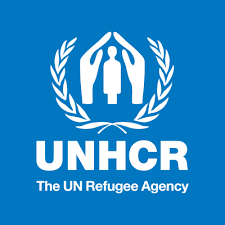More than 230,000 people have fled violence in the Kivu provinces since the beginning of the year, while Tshopo province remains under threat from intercommunal tensions, the United Nations High Commissioner for Refugees (UNHCR) has announced.
In the conflict-ridden eastern Democratic Republic of Congo, the humanitarian situation is growing increasingly dire.
“The escalation of clashes between non-state armed groups and the Congolese army in the Kivu provinces is intensifying one of the world’s most alarming and underreported humanitarian crises,” UNHCR said.
The situation is particularly severe in North and South Kivu, home to 4.6 million internally displaced persons. Between January 1 and 6, intense fighting in Masisi and Lubero territories forced approximately 150,000 people to flee, while an additional 84,000 were displaced in Fizi territory.
“Combatants are using civilians’ homes as shelters, putting residents in danger and blurring the line between fighters and civilians,” explained UNHCR spokesperson Eujin Byun, in a note received by APA on Friday.
Humanitarian access is severely restricted due to insecurity, roadblocks, and the presence of armed actors.
The financial situation compounds the crisis. “Safe and unhindered access for humanitarian workers must be guaranteed and measures to protect civilians—particularly women and children—should be prioritized,” emphasized Byun, noting that UNHCR has received only 10% of the $226 million needed for the year.
In Tshopo province, the outlook is equally grim. The United Nations Joint Human Rights Office (UNJHRO) documented 303 civilian victims since February 2023 in a conflict between the Mbole and Lengola communities.
“Suspects of these abuses have been unanimously identified as young men, often speaking Mbole/Lingala or Swahili/Lengola,” the UNJHRO reported, adding that the assailants were armed with firearms,machetes, knives, and poisoned arrows.
This conflict, rooted in a 4,000-hectare land dispute, has already displaced 107,000 people. The violence includes heinous acts such as “gang rapes, rapes accompanied by, preceded, or followed by inhumane and degrading treatment,” according to the UNJHRO report.
ARD/te/sf/lb/gik/APA


